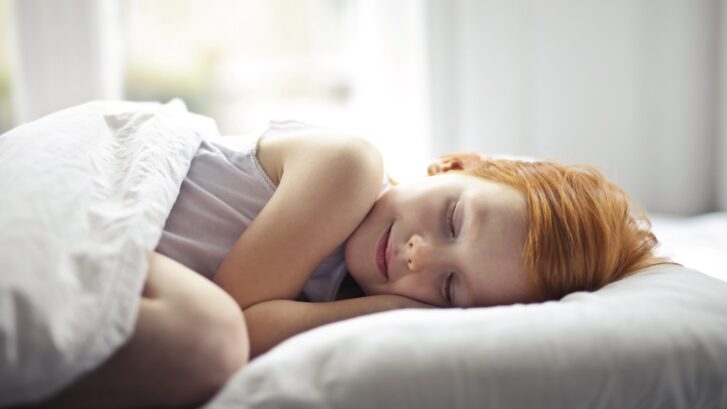Don’t Let Kids Skimp on Sleep
The National Sleep Foundation has designated this week National Sleep Awareness Week, to celebrate sleep health and encourage the public to prioritize sleep to improve their overall health and well-being.
In recent years, more attention has been placed on our need for quality sleep, and the dangers inherent in not getting enough of it. But our VIP concierge doctors at MD 2.0 in Jupiter have noticed that children are rarely mentioned in sleep campaigns, and yet poor sleep habits can affect them in ways you may not be aware of.
Effects of poor sleep
According to the National Institutes of Health (NIH), here are some of the ways insufficient sleep affects adults, as well as children and teens.
Brain and emotions
Sleep helps form new pathways to enhance learning, memory, problem-solving, decision-making, and creativity. Sleep deficiency has been linked to anxiety, depression, suicide, risky behavior, and inability to cope with change. In addition, children who are sleep deficient may feel angry and impulsive, have difficulty paying attention, and get lower grades.
Physical health
Ongoing sleep deficiency is linked to the risk of obesity in all age groups. In addition, insufficient sleep hinders the body’s ability to repair itself, including hampering the immune system. Sleep also supports healthy growth and development in children and teens, helping to boost muscle mass.
Lasting impacts
While adults can often shrug off a few nights of sleep deprivation, it appears that poor quality sleep can have longer-lasting effects on children.
These include:
- a higher risk for obesity
- impaired physical development
- difficulty focusing and learning
- a higher risk for accidents
- poor impulse control
- memory problems
- depression or mood swings
- depressed immune system
One study released last month found that later bedtimes for children increased their risk for obesity. Researchers discovered that children who went to bed after 9 p.m. had a wider waist and higher body mass index (BMI) by the end of the study.
“This late bedtime was one factor that really stood out,” said Dr. Claude Marcus, a professor of pediatrics at the Karolinska Institute in Sweden, and a study author. They found that, no matter how long a child slept, the 9 p.m. cutoff for bedtime was the determining factor in the children’s weight gain.
And another 2019 study by researchers at the CHEO Research Institute in Ottawa found that kids who don’t get enough sleep and spend large amounts of time on screens are more likely to act impulsively and make poor decisions.
And while lack of sleep has never been shown to cause ADHD, the symptoms of both ADHD and sleep deprivation in children are similar: impulsivity, inattention, and difficulty regulating emotions.
So much so that some professionals worry that poor quality sleep can lead to a misdiagnosis of ADHD in some children.
“I think some professionals are a little worried that some of the indications of inadequate sleep could, if someone is not looking at sleep as a possible culprit in the situation, lead people to say, ‘Oh, your kid probably has ADHD—let’s put them on meds,’ ” Wendy Hall, told Today’s Parent. Hall is a registered nurse and sleep expert at the University of British Columbia in Vancouver.
“As a society, we’ve come to the conclusion that, for some reason, sleep is discretionary,” she added.
Helping kids sleep
According to the American Academy of Sleep Medicine, children ages three to five should get 10-13 hours of sleep a day, and six- to 12-year-olds should sleep between nine and 12 hours every night.
- Establish a regular bedtime and be sure they stick to it, even on weekends. Set an alarm clock, if necessary.
- Turn off the TV at least two hours before bedtime, and steer them toward quiet games or (physical) books. Discourage stimulating play or roughhousing for at least an hour before bedtime.
- Restrict younger children’s exposure to blue screens, even during the day. The blue light they emit interferes with production of the sleep hormone melatonin.
- Create a consistent bedtime routine: changing clothes, brushing teeth, using the toilet, saying good night to everyone.
- Provide a bedtime snack, if necessary, but avoid caffeine and sweets, which can be stimulants.
- Ensure a restful environment in their bedrooms: no lights (or only a low-watt nightlight, if necessary), a cool room, a quiet house.
If your children aren’t sleeping well, or you have questions about their behavior or health, please let us know. We can help you improve sleep habits.

